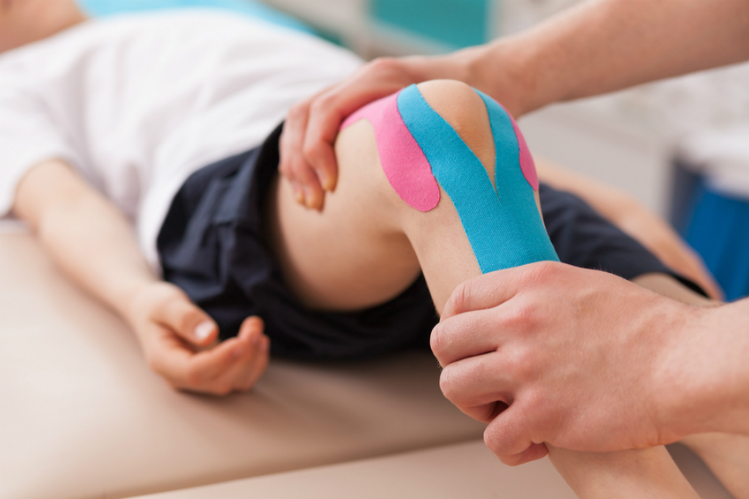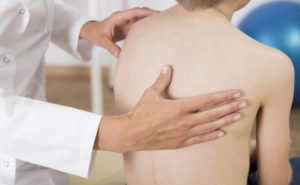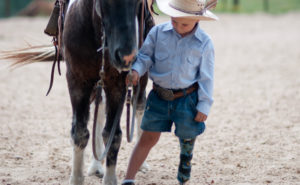Knee injuries can leave your child on the sidelines or even on the surgical table. Learning how to prevent and treat sports-related knee injuries can offer safety and peace of mind, allowing you to cheer on your family’s favorite athlete with confidence.
Every parent wants so see a child succeed in their favorite sports. Understanding how to prevent and treat youth sports injuries is one of the best ways to support young Arkansas athletes and avoid all-too-common visits to the hospital. A shocking 3 million emergency room visits occur every year for youth sports injuries, according to Nationwide Children’s Hospital. Many of these visits are caused by knee injuries, due in part to this joint’s susceptibility to fractures, sprains, dislocations, and tears. The following information will help you reduce your child’s risk for a knee injury and find a youth knee support in Arkansas that can promote recovery if an injury does occur.
1. Ensure Your Child Gets Plenty of Rest
One of the most common causes of knee injuries is overuse, which can take a toll on your child’s growing body. Muscles, ligaments, tendons, bones, and growth plates can all be damaged by youth knee injuries. According to the American Academy of Orthopaedic Surgeons (AAOS), bones may grow faster than muscles and ligaments, which makes the latter structures tight and susceptible to tearing. AAOS also notes that the developing cartilage in young athletes’ knees can be harmed by overuse, leading to a disruption of normal bone growth.
As a parent, you have the ability to shape your child’s schedule in ways that can prevent knee injuries. It is in their best interest to limit participation in sports to one team per season. While many kids in Arkansas enjoy playing multiple summer sports, this puts them at risk for injuries linked to overuse. You should also be sure that your child takes breaks from a single sport that they could otherwise play year round. Cross-training, or participating in a variety of different exercises and activities, is recommended by the American College of Sports Medicine as another way to prevent knee injuries. When your child is cross-training, have them wear a prophylactic knee brace. This youth knee support can proactively prevent youth sports injuries from occurring.
2. Use the R.I.C.E Method to Treat Minor Knee Injuries
If your child suffers a knee injury while playing sports, you should take them to a doctor to have the knee examined. For mild injuries, such as minor sprains and pain from overuse, following the RICE protocol may be enough to relieve symptoms and promote healing. RICE is an acronym that stands for:
- Rest: Have your child use crutches and stay off the injured knee as much as possible, especially until they can be seen by a doctor.
- Ice: Apply ice to the injured knee in 15- to 20-minute increments over the period of several days to reduce any swelling.
- Compression: Use a youth knee support, such as a brace, wrap, or compression sock, to reduce swelling.
- Elevation: Have your child rest their knee by propping the affected leg up above their heart to control swelling.
Once your child is able to see their primary care physician, you may be given additional treatment instructions.
3. Recognize the Signs of Serious Knee Injuries
Severe knee injuries will require immediate attention and treatment. Some common examples of serious knee injuries include:
- Complete ACL/MCL tears
- Fractures
- Dislocations
- Articular cartilage injuries
If your child cannot place pressure on their knee without intense pain or if the injury was accompanied by a popping or snapping sound, there is a good chance they have suffered a serious knee injury. The necessary treatment will depend on your child’s specific diagnosis, which a doctor will reach through an MRI, X-Ray, CAT scan, or some combination of the three.
Some treatments may be as simple as giving your child anti-inflammatory medications and immobilizing the joint with a youth knee support so the injury can heal. More severe injuries may require surgery to repair fractures, torn ligaments, or tendon damage. This is especially common when the ACL or MCL has been completely torn. If your child’s knee does require surgery, a minimally invasive option like arthroscopy may be the best course of action.
If your child needs a youth knee support after a sports injury in Arkansas, contact Horton’s Orthotics & Prosthetics today at 501-683-8889 to set up an appointment with one of our certified clinicians.




Leave a Reply